Basic counting skills Normal Worksheets for Ages 6-7
7 filtered results
-
From - To
Our "Basic Counting Skills" worksheets for ages 6-7 provide a fun and interactive way to strengthen foundational math skills. Designed to engage young learners, these worksheets cover counting from 1 to 100, simple addition and subtraction, and recognizing number patterns. Perfect for use at home or in the classroom, they'll help your child develop confidence in their counting abilities. Each worksheet combines colorful illustrations and clear instructions to make learning enjoyable. Download our worksheets today and give your first-grader a head start in math with playful and educational activities! Boost their number sense effortlessly with Kids Academy.
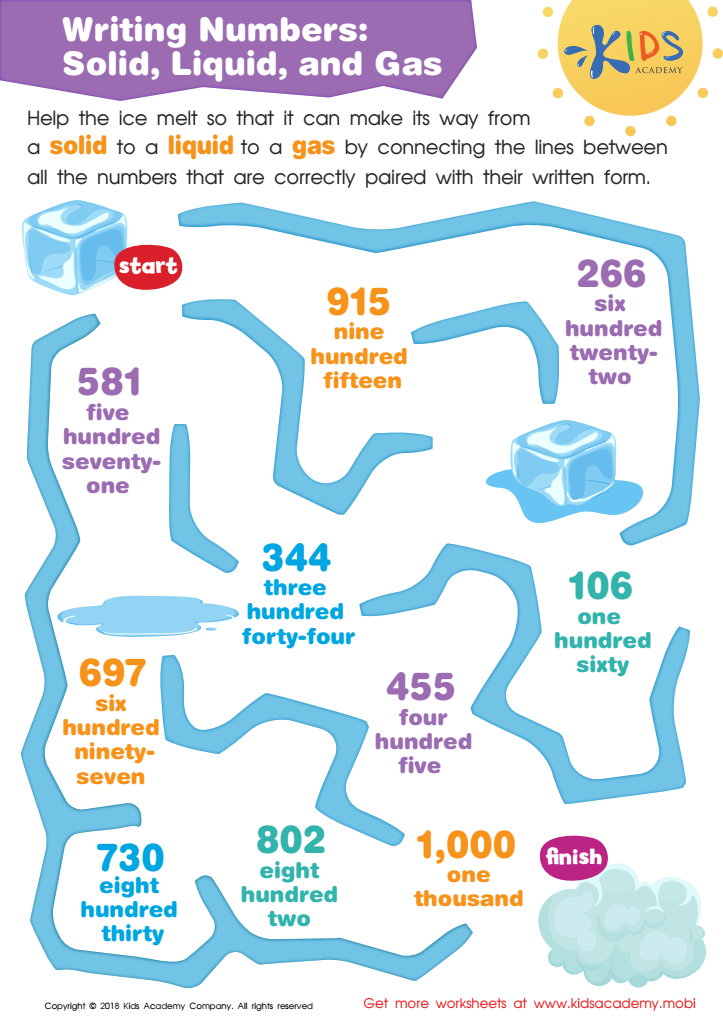

Solid, Liquid, and Gas Writing Numbers Worksheet
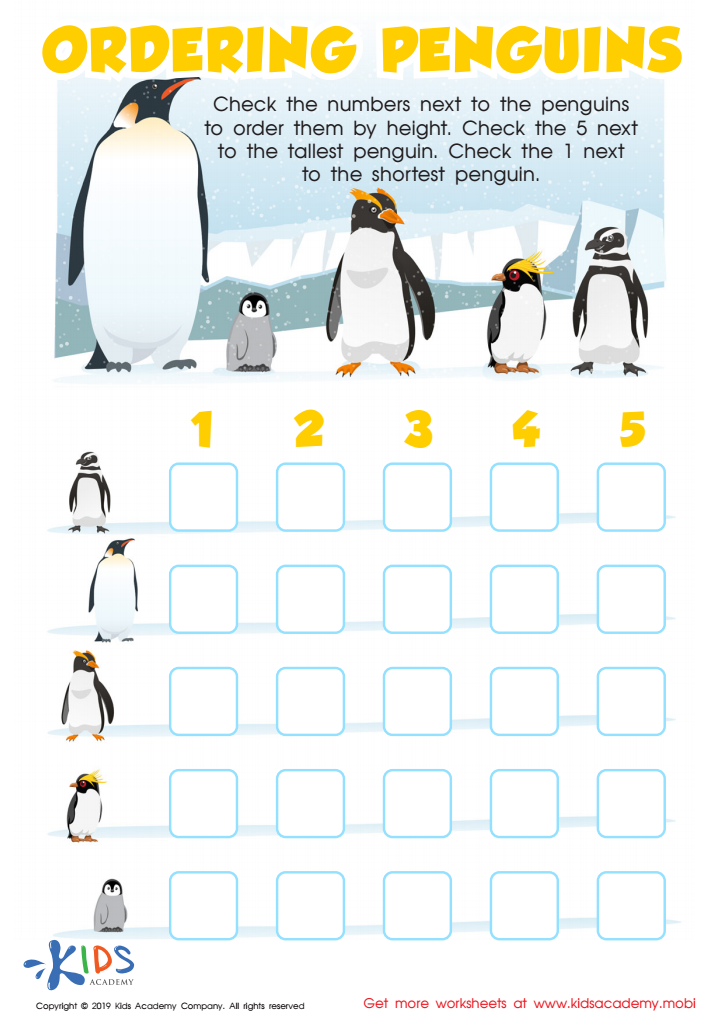

Ordering Penguins Worksheet
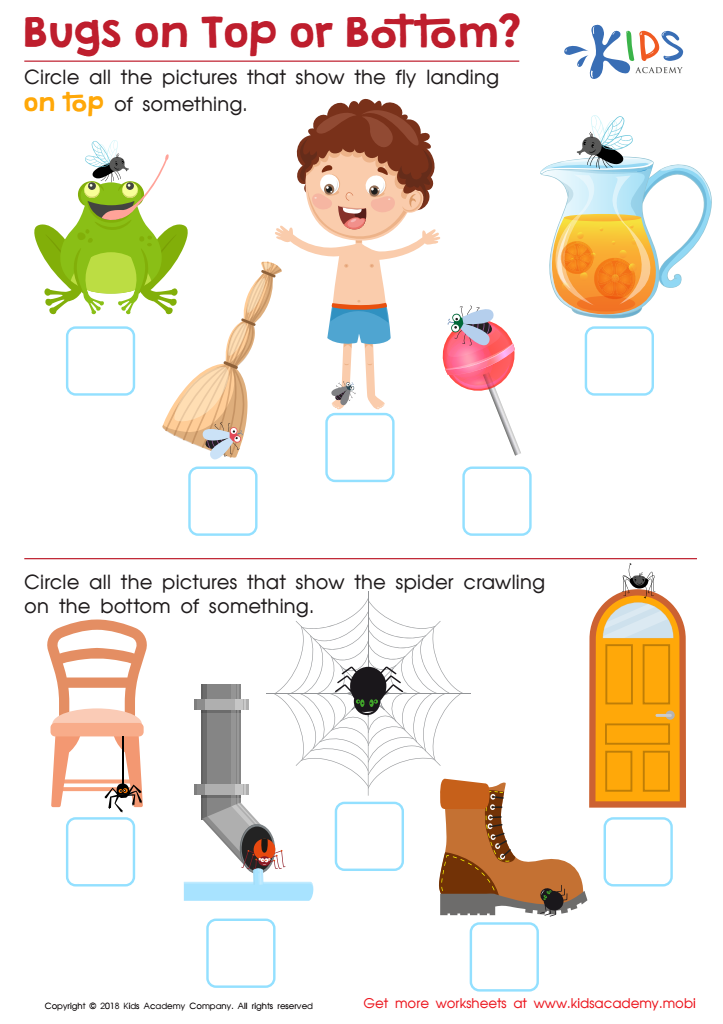

Bugs on Top or Bottom? Worksheet
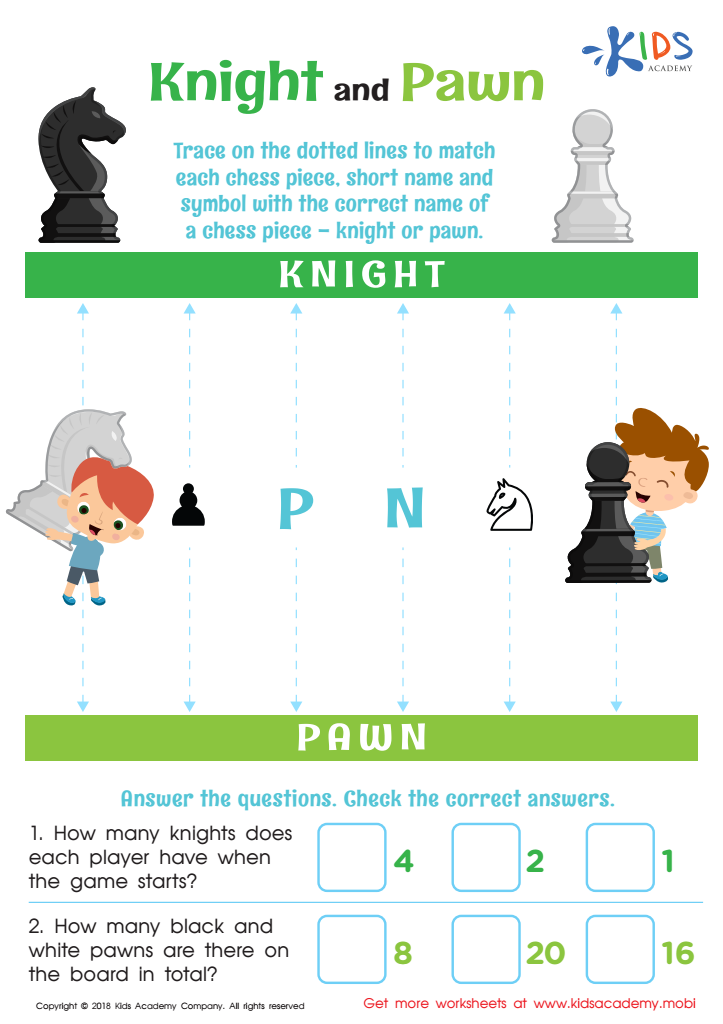

Knight and Pawn Worksheet
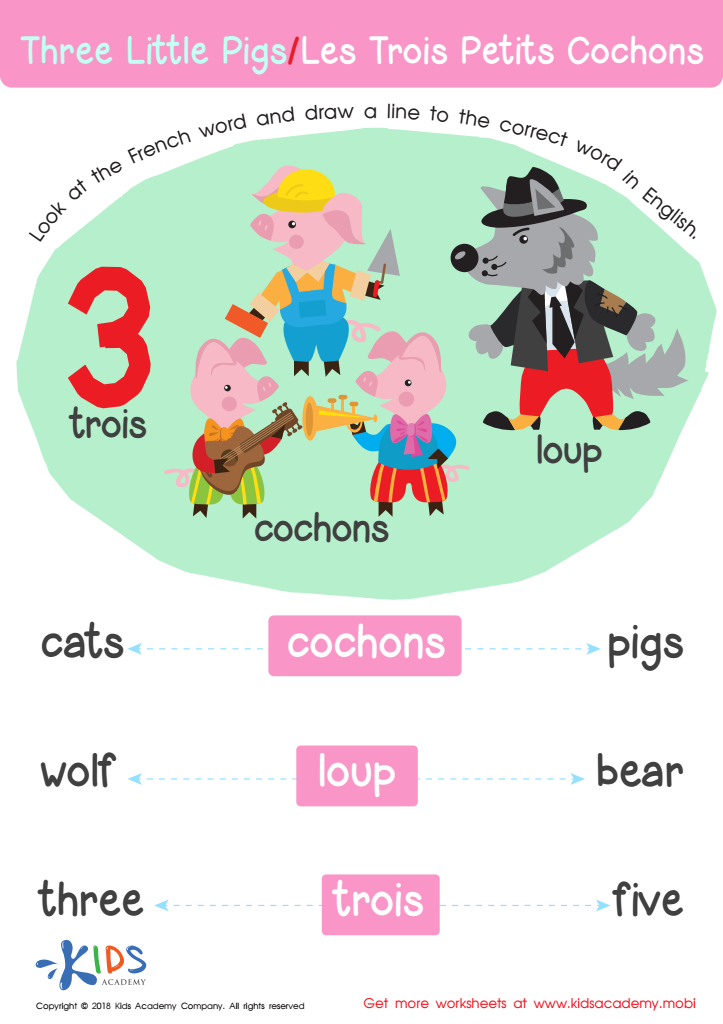

Three Little Pigs / Les Trois Petits Cochons Worksheet
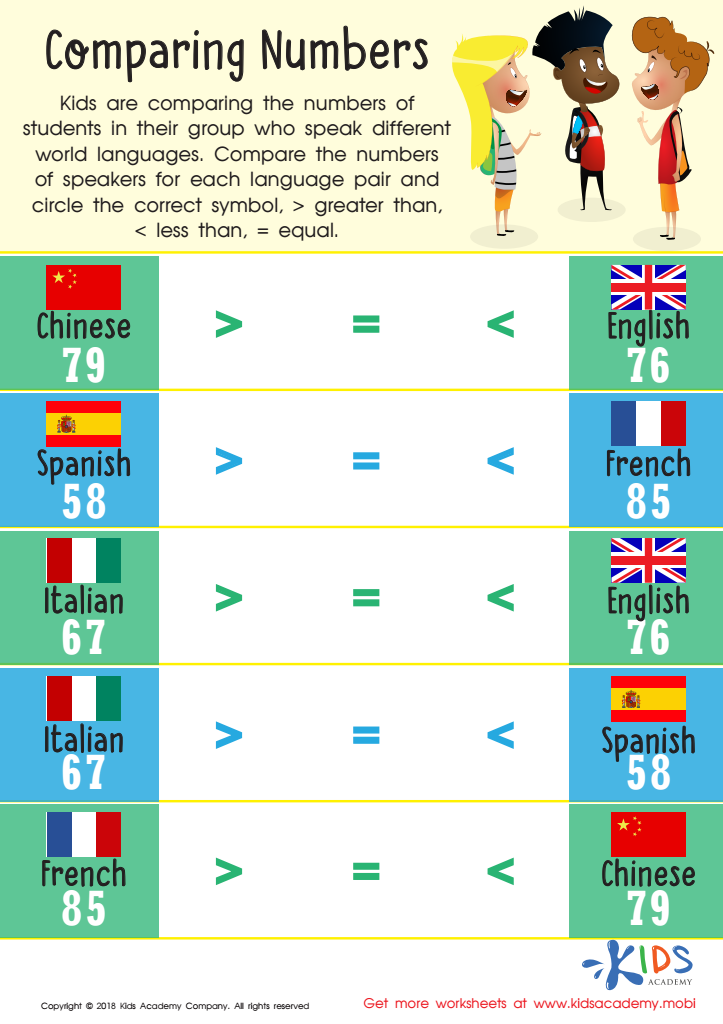

Comparing Numbers Worksheet for 1st Grade
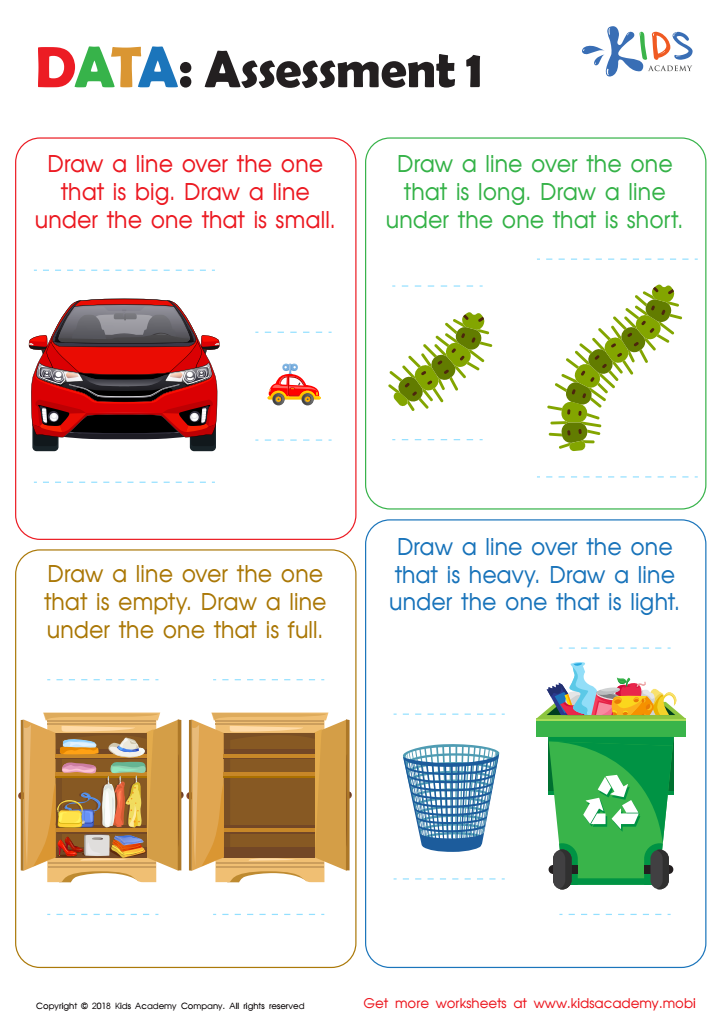

Data: Assessment 1 Worksheet
Basic counting skills are crucial for children aged 6-7 as these skills lay the groundwork for their future mathematical understanding and overall academic success. At this age, children are transitioning from simple number recognition to more complex concepts involving addition, subtraction, and problem-solving. Mastering basic counting helps them gain a clear understanding of number sequences, quantity comparisons, and one-to-one correspondence.
For parents and teachers, fostering these skills early on sets the stage for a child’s confidence in math. Struggling with basic counting can lead to frustration, anxiety, and a negative self-perception regarding their mathematical abilities. Early mastery helps ensure a smooth progression to more advanced concepts such as place value, operations, and even early multiplication.
Moreover, foundational counting skills are not confined to math alone; they play a significant role in everyday activities and decision-making. Tasks such as distributing items evenly, managing time, and understanding money all require basic counting proficiency.
Encouraging strong counting skills also promotes cognitive development. It enhances other abilities including critical thinking, pattern recognition, and logical reasoning. Therefore, parents and teachers should actively engage children in counting activities, games, and practical exercises to make learning continuous and enjoyable. Investing time and resources in strengthening these essential skills early in life yields long-term academic and practical benefits.
 Assign to My Students
Assign to My Students





















